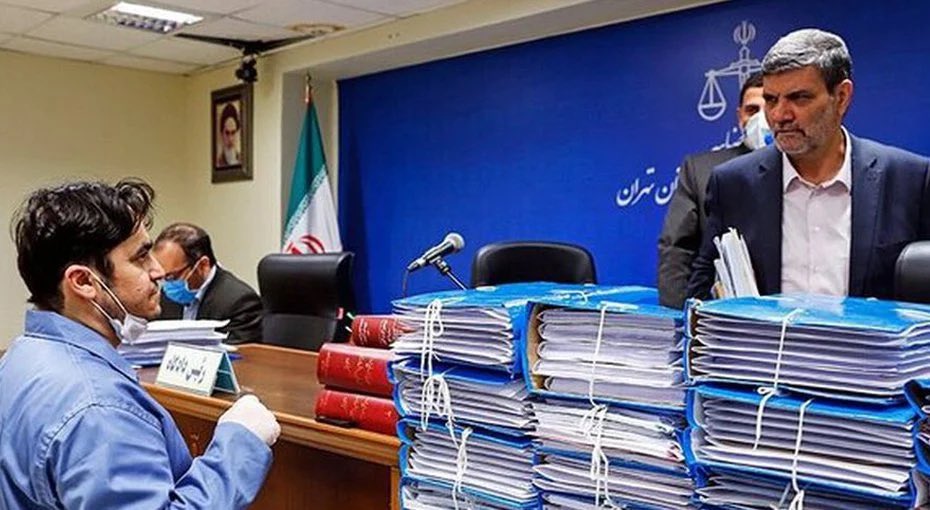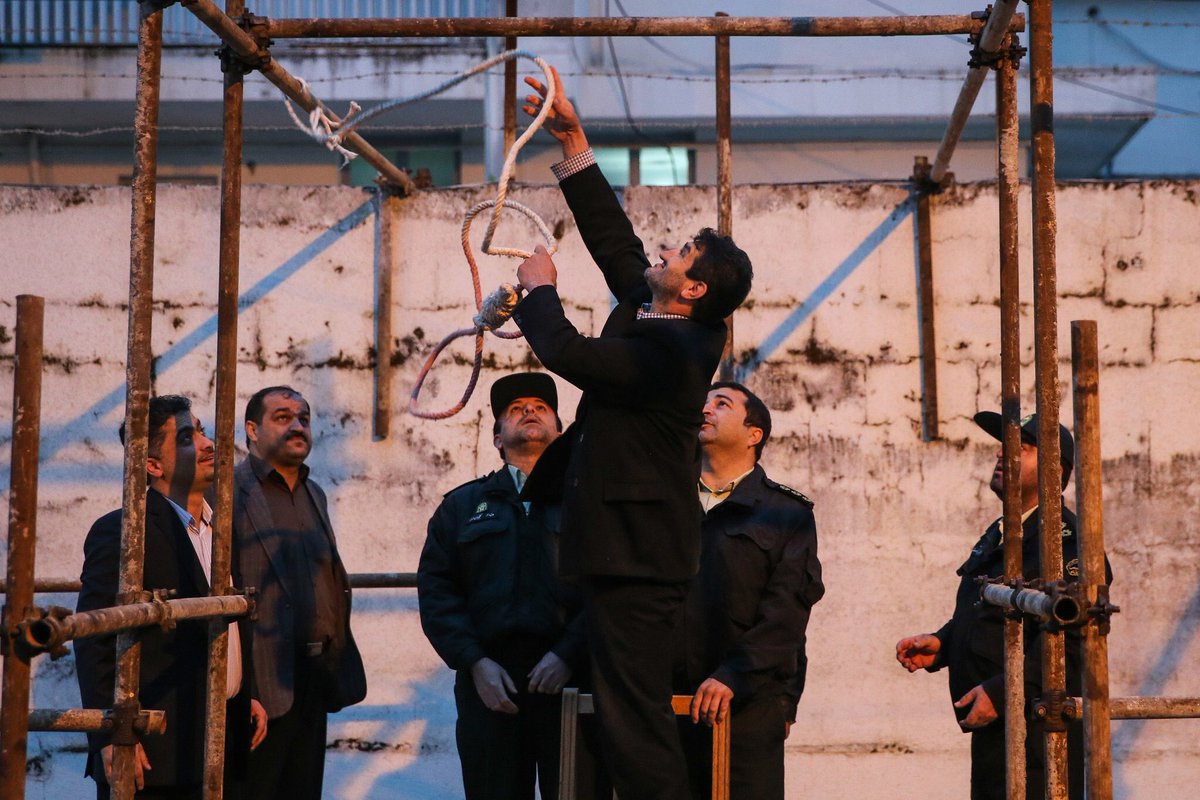European countries’ withdrawal from Europe-Iran Business Forum to protest Iran’s execution of dissident journalist #RuhollahZam is welcome affirmation against turning a blind eye to rights violations. http://www.iranhumanrights.org/2020/12/europe-says-no-business-as-usual-with-iran-after-hanging-of-dissident-journalist #notobusinessasusual
Ruhollah Zam, 47, who managed a Telegram news channel critical of #Iran’s policies, was convicted in June 2020 of “corruption on earth” & hanged on December 12, 2020
Over the past year, Iran has increased its use of the death penalty in political cases, applying it against protestors & activists after unfair trials without due process as part of intensifying suppression of dissent #stopexecutionsiniran
Other rights abuses are increasing in Iran too: long prison sentences for peaceful activists & human rights defenders, street protests violently crushed, civil society organizations shuttered, dual nationals imprisoned. http://www.iranhumanrights.org/2020/09/iran-new-charges-thrown-at-political-prisoners-to-keep-them-behind-bars/
Ignoring this behavior will encourage more of the same or worse. Long term stability & peace will not be served. States are correct to integrate human rights concerns into all bilateral & multilateral relations, be they political or economic. #Iran #notobusinessasusual
But states are not the only ones that should care about human rights. Business should too. Country contexts characterized by severe human rights violations pose reputational, financial & legal risks for any business #Iran #notobusinessasusual
The absence of the rule of law, lack of a judiciary independent from state security forces, and failure to adhere to int’l standards re fair trials & due process in #Iran all endanger the operations & personnel of any business #notobusinessasusual
The selection of business partners in #Iran also carries risk. Many individuals & entities will remain sanctioned, with some owning significant stakes in the economy. Iran’s opaque corporate structure makes ownership hard to determine
Rigorous human rights due diligence is also needed because business practices in #Iran often do not conform to responsible business standards. Practices that risk harmful impacts to people & communities include:
Independent unions are not recognized in #Iran & labor leaders are imprisoned, preventing effective collective bargaining, dispute resolution & grievance mechanisms http://www.iranhumanrights.org/2020/09/showdown-at-haft-tappeh-sugar-factory-minor-win-for-workers-larger-abuses-left-unchecked/
Online privacy is deeply compromised in #Iran. State censorship & surveillance on national networks is significant, with implications for data protection, employee/customer security & for the sale of IT products & services http://www.iranhumanrights.org/2019/08/iran-cracks-down-on-instagram-celebrities-as-it-tightens-noose-on-freedom-of-speech-and-expression/
Poor occupational health & safety conditions cause fatal work-related accidents in #Iran to occur at a rate many times higher than the world average. OHS training, monitoring and enforcement are largely absent
Workplace discrimination based on gender, ethnicity, religion, sexuality & disabilities is prevalent throughout #Iran & reflected in hiring, contracts, wages, benefits & job security #notobusinessasusual
There are at least 3 million child laborers in #Iran—often in small workplaces exempt from regulatory oversight—and several million Afghan migrants who are exploited through dangerous & underpaid work #childrensrights http://www.iranhumanrights.org/2019/11/children-in-iran-should-be-protected-from-numerous-rights-violations/
Severe water scarcity and air pollution in #Iran endanger people’s lives as well as companies’ long-term operations, but environmental & social impact assessments, when done, have little if any rigor or worth
Labor regulations in #Iran are largely unenforced, leaving the majority of workers unprotected & labor law loopholes leave a major portion of the country’s workplaces unregulated
Human rights due diligence to identify adverse impacts from business activity is critical but obtaining the info & enlisting the local cooperation needed to identify such impacts is difficult in #Iran
Publicly available company info is limited, engagement with workers & communities (essential to due diligence) is not standard practice & lacks established channels, civil society orgs are weak & the press is state-controlled
Opaque subcontracting, often without contacts, adds to the difficulties in obtaining info on a partner’s or supplier’s practices. This raises a company’s risk of being linked to human rights violations
Business does not & cannot operate in a vacuum; human rights concerns are business concerns. Business can promote livelihoods & well-being; it can also perpetuate inhumane practices & rights violations
The impact of business depends on its adherence to responsible standards, such as the UN Guiding Principles on Business & Human Rights. Promotion of business should be linked with the promotion of human rights. http://www.iranhumanrights.org/2020/12/europe-says-no-business-as-usual-with-iran-after-hanging-of-dissident-journalist/

 Read on Twitter
Read on Twitter




